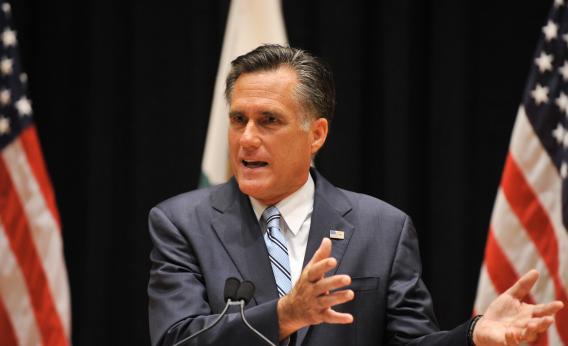Mitt Romney’s disparaging remarks about people who have no net federal income tax burden struck me particularly, because just last week I wrote a column on some new research which shows that tax cuts for the poor have, over the past forty years, been one of America’s most effective anti-poverty programs. The official federal poverty statistics, sadly, don’t capture this because they only measure pre-tax income, even though after-tax income is what really matters.
Here’s a relevant excerpt:
They also show that public policy has made a big difference in the real poverty rate. Throughout the ’60s and ’70, the tax code was made friendlier to poor people. That was partially rolled back by Ronald Reagan in 1981, but then the 1986 tax reform changed the tide again by introducing the Earned Income Tax Credit. This important program—a form of wage subsidy for low-income families—pushed after-tax poverty down substantially in the early 1990s. The tax provisions of the 2009 stimulus bill, once again, made the after-tax situation of low-income households better looking than the official line’s pretax numbers would suggest. Social Security, especially through its disability insurance function, has also played a big role in pushing actual poverty between 1967 and 2010 down six percentage points more than the official stats say.
Of course partisan politics has been happening all this time. But these have been fairly bipartisan causes. Tax cuts for the poor happened under Richard Nixon and under Ronald Reagan. Tax cuts for the poor was something the Clinton administration and the House GOP was able to agree on. Tax cuts for the poor were a small-but-real element of George W. Bush’s 2001 tax cut. Democrats like to help poor people and Republicans don’t like taxes, so helping the poor with lower taxes is often something they can agree on. It’s a real shame that the official data doesn’t capture how successful this is, but it’s basically common sense. A conservative movement that can’t bring itself to want to help poor people with lower taxes is one that really doesn’t care about poor people in a profound way.
But don’t take my word for it. Here’s Ronald Reagan bragging about his plan to increase the number of low-income and disabled people who don’t have to pay federal income taxes:
It’s true, in general, that poor people tend to vote for Democrats and it’s probably not worth the Romney campaign’s time qua campaign to worry too much about that. But the idea of simply not caring as a matter of substance is pretty new. Reagan is saying here that the Reagan agenda is good for low-income people. That it’s not just a big giveaway to the rich and that he thinks conservative ideas should in principle be broadly appealing
